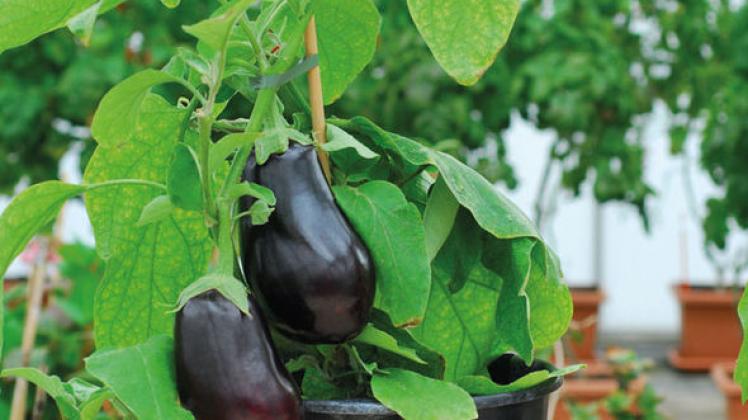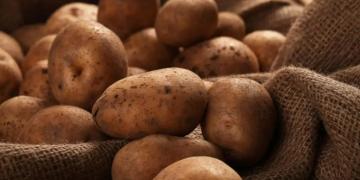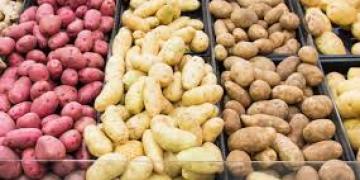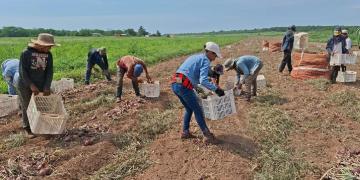Canadá: Organic potatoes a tough row to hoe
Kroeker Farms Ltd. has been growing organic potatoes since the early 2000s

It was more than a hunch that prompted one of Canada’s leading potato producers to begin to transition a few acres to an organic production system in 1999.
The evidence was mounting that organics had potential, said Wayne Rempel, CEO of Kroeker Farms Ltd. in an interview.
“We felt that there was a growing market for organic. The marketing side of it intrigued us,” he said.
Today Poplar Grove Farm, a wholly owned subsidiary of Kroeker Farms Ltd., is Manitoba’s largest certified organic grower of red, yellow and russet potatoes and one of relatively few large organic vegetable producers in the entire country. They also grow onions in an organic rotation near Winkler.
Those 20 acres certified by 2001 have now grown to 4,000 acres, or approximately 20 per cent of Kroeker Farms’ entire landbase. Potatoes and onions remain their primary focus, grown in a rotation with other crops including grains, oilseeds, hemp, and hay. It’s a rotation designed to keep weeds in check and boost nitrogen for the year they’re growing potatoes, said Marv Dyck, Kroeker Farms organic farm manager.
“Our rotation is basically set up with a horticultural year, followed by a grain year, followed by a green manure year and then we rotate back to a horticultural crop,” he said.
Read more: More farmers looking at organic potential
They also use on-farm-produced compost as fertilizer and compost teas which are a natural fungicide. Weed control is achieved by a combination of mechanical and manual means. To control insects, they’ve experimented with various ways and now use a range of controls, from biosprays and bug vacs, to flamers and even trenches lined with plastic to keep potato beetles off the plants.
It’s a healthy and productive system that works now. But 15 years ago, when they began they had no idea how complicated it would be to establish. It is no small undertaking to figure out a management-intensive system when your focus has been on use of inputs, Rempel said.
“It required a change in our thinking,” he said. “We once thought that the soil was really just an anchor for the roots and it was just basically chemistry that was needed. Now we look more to soil as being biology.”
It’s been a process of continuously learning by observing and working with the land, and taking a whole-farm approach, Dyck said.
“You have to be willing to get into the biology of the system in a way that you maybe didn’t have to do before,” he said. “A lot of your solutions are not off the shelf, but are more part of the farm. You have to think of things ahead of time and you have to be able to spend a lot of time seeking out new ways of doing things.”
Plus, there were not — and still are not — a lot of organic farmers around to help you find those answers, he added. “You have to be willing to seek out those answers and be diligent about it.”
One of their biggest challenges has been finding varieties best suited for an organic system, Rempel said. A heavy nitrogen user crop like potatoes not only must be a very efficient user of soil nutrients, but in an organic rotation needs optimum disease resistance and it has to look good after harvest.
“There’s just a whole host of things to think about when choosing your varieties,” Rempel said. “That’s been our biggest area of research.”
Has it all been worth it?
Absolutely, Rempel said. Organically grown potatoes do not yield as high as conventional crops, but they’re satisfied when they yield between 50 to 65 per cent of conventional. The premium consumers pay for organic potatoes makes this a consistently profitable crop to grow in what is otherwise a capital intensive, competitive industry with stagnant growth. Poplar Grove Farm-grown potatoes are sold under an organic stamp through Peak of the Market.
“Yields have been where we wanted them to be and it has been worthwhile to be organic,” said Rempel. “It’s a lot of work. I think if we’d known how much we probably wouldn’t have started. But it’s working for us now.”
Fuente: http://www.manitobacooperator.ca/crops/organic-potatoes-a-tough-row-to-hoe-but-profitability-makes-the-effort-to-produce-them-worthwhile/




